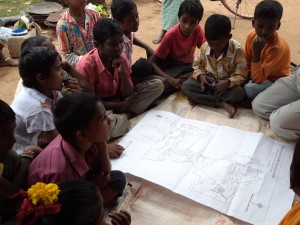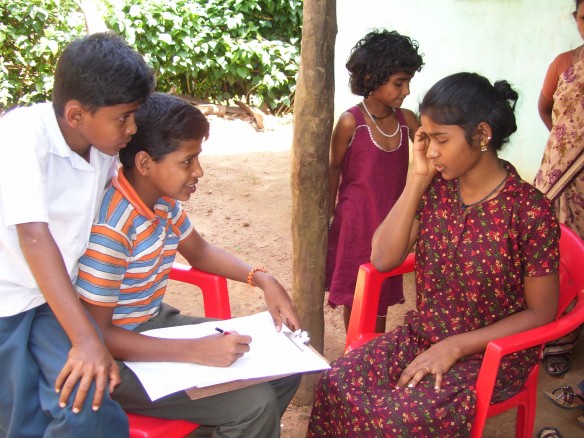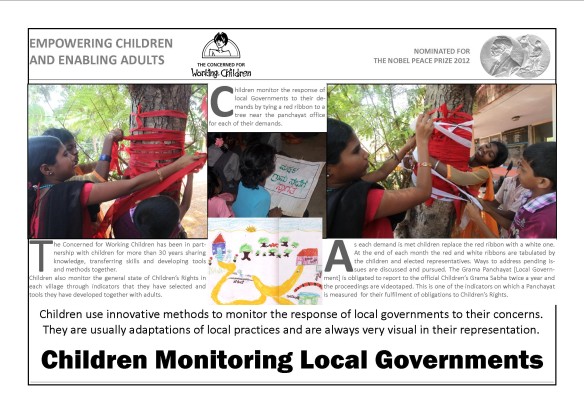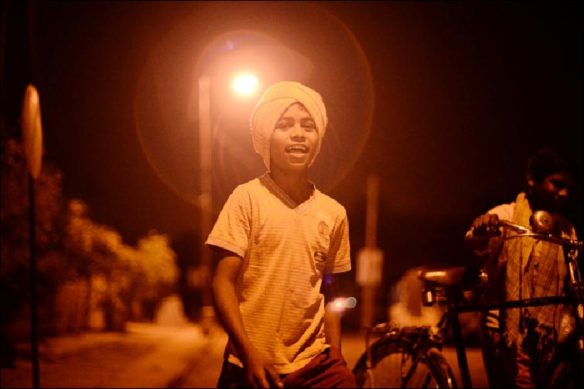Information management
 CWC believes that children are capable of identifying obstacles, advocating for solutions, and participating in governance. The role of adults is to facilitate children’s participation, not to speak for children.
CWC believes that children are capable of identifying obstacles, advocating for solutions, and participating in governance. The role of adults is to facilitate children’s participation, not to speak for children.
When it comes to research and advocacy, too, we believe that children can and should take the lead. Children have been the objects of research for centuries, but too much research into children’s lives is done with minimal input from children themselves. Too often the resulting research fails to address the issues that are central to children’s own concerns, and policies based on such research too often ignore children’s needs – and can actually harm children.
CWC takes a different approach, facilitating children to participate in the process of ‘rights-based information management’ – not just as the subjects of research, but as researchers, compilers and distributors of information themselves. We help children identify issues where research is needed, design effective tools, and collect and analyse results. Armed with proper information, children can then perform effective advocacy for their own causes and contribute more effectively to the governance of their communities. In this framework, children are child protagonists, controlling information and claiming their right to self-determination through their participation.
“We missed our playtime, free time and even marriage celebrations! But, we are very proud that we were able to do something for our village. We have identified our problems, we know the solutions and also how to get them solved.”
– A child research protagonist from a research study on Transport Solutions
What is research by children?
Research by children is not the same as simply ‘consulting’ children, or even using children to help with the collection of information. It means a process where children themselves identify research needs, set the research framework, design the methodology, develop and administer the tools, consolidate and analyse the findings – and use the information to solve their problems through advocacy and direct solutions.
For the groups of children CWC works with, research without avenues for converting into action (advocacy and/or participation) has little meaning.
Through rights-based information management, children leverage for change and engage in social monitoring.
Why child-led research?
- Children are aware of the obstacles they face and are best placed to identify issues for research
- Children are often better able to obtain truthful answers to sensitive questions
- Children retain ownership of the information collected
- Children develop valuable new skills
- Children gain new-found confidence and respect through conducting research
- Research is a life-skill for children
- Research is a critical component of children’s participation and citizenship
Examples of children’s research and advocacy
A comprehensive household survey
CWC’s work with child-led research began in response to our work deepening children’s participation in governance. In the 1990s innovations like Makkala Panchayats (children’s councils) and Makkala Grama Sabhas (children’s village meetings) gave children the opportunity to have a direct say in the running of their communities. But children quickly realised that to contribute effectively, they needed detailed information on the situation in their villages. What proportion of households had an adult at work? What proportion of children were working? How many households had seen a member migrate to the city for work? Rather than wait for the next government survey, children decided to conduct the research themselves.
In 1998-9, with the help of CWC, 270 children in the eight panchayats conducted door-to-door surveys asking their neighbours for basic information about their family demographics, living conditions, employment status and finances. The children, many of whom had received only elementary education, designed special survey cards using diagrams and multiple-choice questions to overcome language barriers. Carrying out the survey on top of school and work, the children surveyed over 7500 households in a ten-month period.
The children did not merely record the problems they uncovered however, but quickly began acting to address them – re-enrolling children to school, applying for ration cards for families without it, applying for widow and old age pension, and rescuing children who were engaged in bonded labour. They shared their findings with every stakeholder in the community and authorities. Ultimately the survey exercise led to developing action plans for each of the Gram Panchayats, to address the problems uncovered.
“Usually when surveys or censuses take place, some strangers or unknown people come and collect ‘some’ information from our households. But in this case, it was our own children collecting information about us. That was very appealing and we felt the need to give them correct information.”
– Vasudev, clerk of Alur Panchayat, one of the villages surveyed
Here are more examples of children’s rights-based information management and advocacy:
Children advocating for child rights friendly Panchayats
Children act on effects of alcohol consumption in three Panchayats
Children contribute to the national five-year plans
Children in three continents solve their transport problems
Children address problems of alcoholism in Keradi Panchayat
Adults as partners in child-led research
For children to meaningfully engage in their information management and advocacy, the facilitating role played by adults assumes great importance. Adult facilitators at CWC work with children as partners in their research. The key responsibilities of adult facilitators include:
- Demystifying research
- Exposing children to a variety of research methods
- Facilitating children to design their research and research methods based on their needs
- Explaining the methods of analysis and drawing conclusions
- Letting children draw their own conclusions in the way they understand their information
- Creating an enabling environment that is
- Democratic and transparent
- Participatory and enables learning
- Safe and trustworthy
- Serious yet enjoyable
- Free from discrimination
- Inclusive
Ethics for facilitation of child-led research
CWC recognises that as facilitators of child-led research, the ethical principles by which adults operate is critical to the integrity of the entire research process. Enabling children’s participation does not mean letting go of the process and leaving children to fend for themselves. Further, adults must not rush the research process and consciously create enough space for children to move at their own pace and context.
CWC has developed a detailed ethical code for adults facilitating child-led research. Please contact us if you would like more information on this.
Tool for Priority Ranking: Priority Ranking Session Plan
Tool for Social Monitoring: Red Ribbon – White Ribbon process




